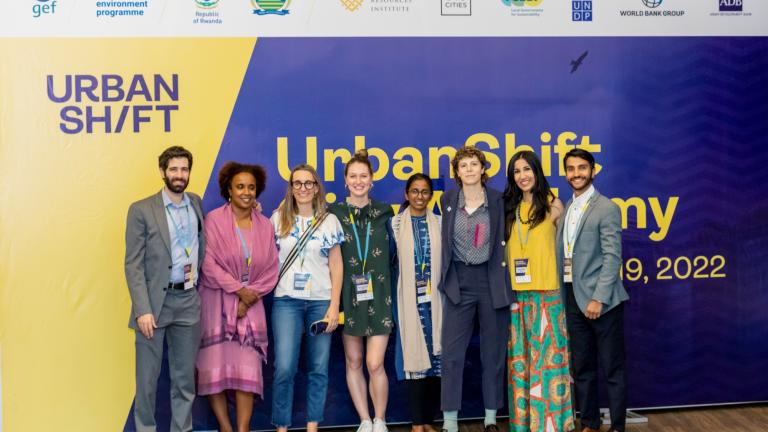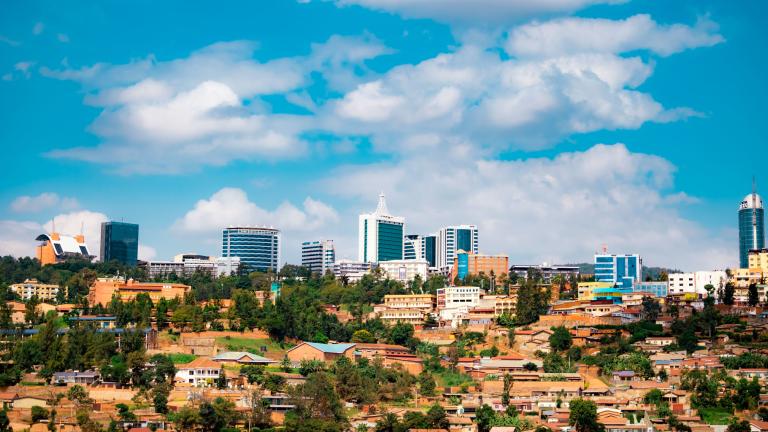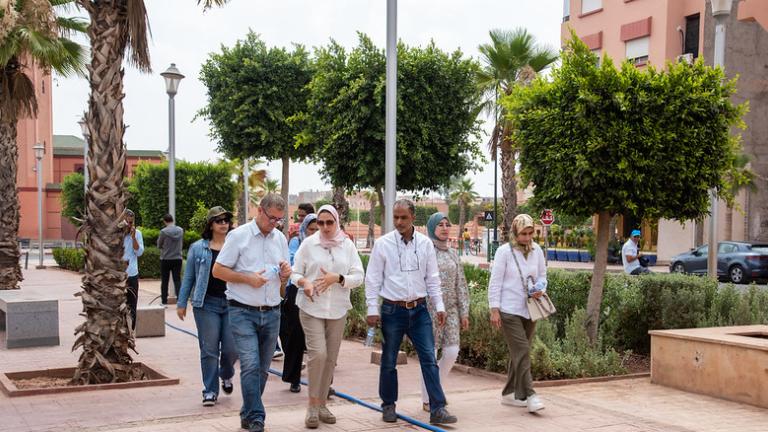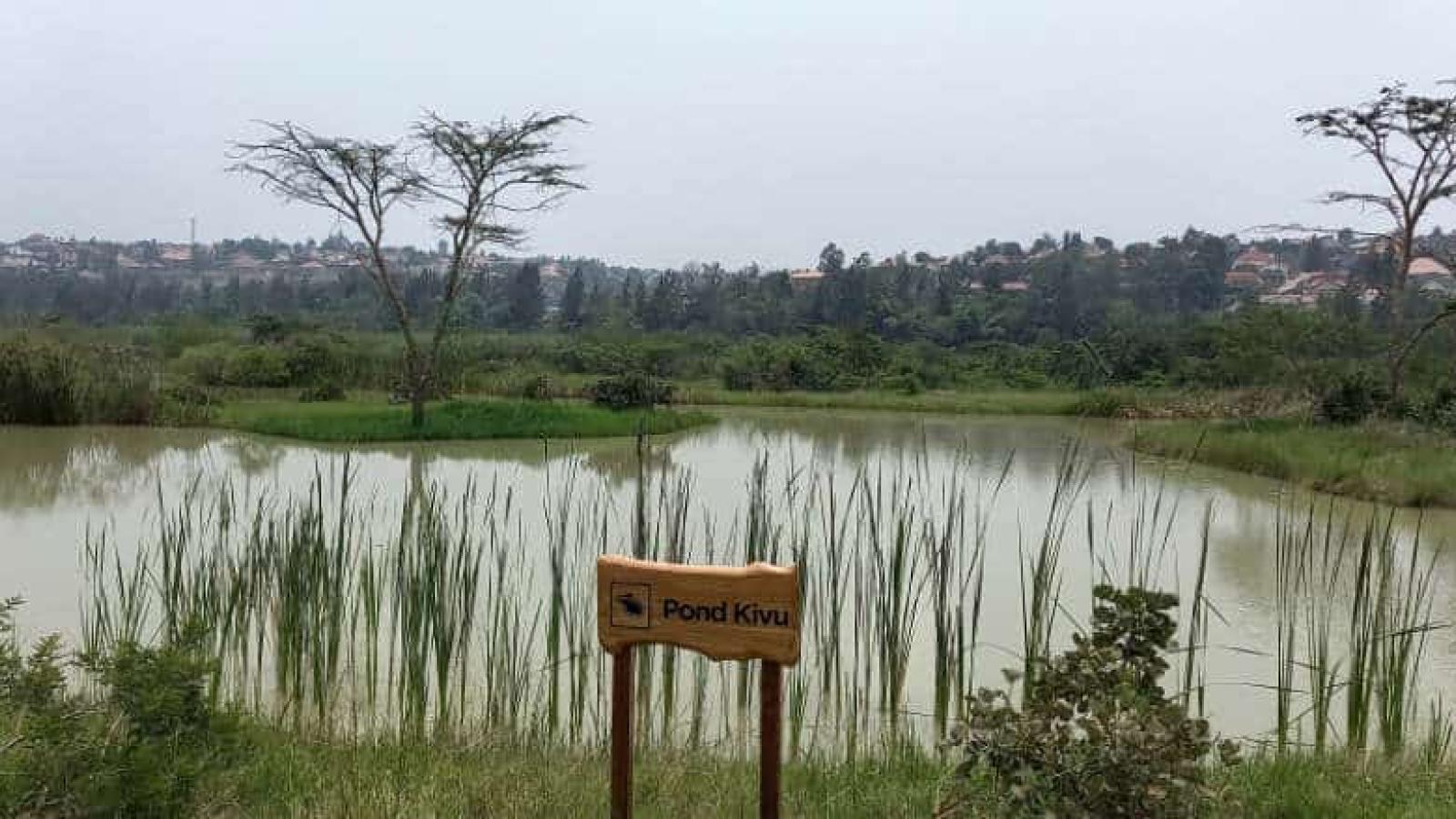Restoring Kigali’s Wetlands to Accelerate Climate Resilience
Through its effort to restore urban wetlands, Kigali is mitigating its flood risk and emerging as and exemplar for resilient development.
The restored Nyandungu Wetland in Kigali, Rwanda.
Over the past two decades, Rwanda – the land of a thousand hills – has made remarkable strides: poverty has significantly declined, and quality of life has improved. The service, industrial, and agricultural sectors have flourished. Even in the aftermath of the COVID-19 pandemic, Rwanda has confirmed its economic resilience: The GDP growth rate reached 10% in 2021 and the country is on track to achieve middle-income status by 2035.
How Climate Change Tests Rwanda’s Resilience and Economic Growth
Despite this progress, challenges persist. As industries have strengthened and urban areas have expanded, the demand for land has strained the country’s natural resources and resulted in the conversion of many natural ecosystems. The capital city of Kigali, with a population surpassing 1.2 million people, has witnessed an astonishing quadrupling of its physical footprint from 25 km2 to 115 km2 in the past decades. At the same time, climate change has resulted in disruptions to typical rainfall patterns and more intense storms. Coupled with the loss of green areas to naturally manage stormwater and the city’s unique hilly topography, these transformations have dramatically increased flooding risks in Kigali. In the last several years, numerous floods have struck the city, not only damaging infrastructure but also claiming lives. A study concluded that the loss directly attributable to climate change in Rwanda could average 1% per year by 2030. This strain on fiscal resources, compounded by the need for rapid infrastructure deployment and urban service provision, threatens to damper Rwanda’s socioeconomic development goals.
Unlocking Urban Resilience: A Comprehensive Strategy for a Resilient Future
In response, the City of Kigali is taking a comprehensive approach to effectively address these pressing climate challenges, with a particular focus on mitigating its flood risk — both now and for future generations. Addressing flooding requires a multifaceted strategy that touches on all areas of integrated urban planning, from preserving natural areas and biodiversity to advancing smart approaches to growth. In Kigali, the Rwanda Urban Development Project II, (RUDP II), a five-year project to improve access to basic services, enhance resilience, and strengthen integrated urban planning, is providing a framework for effective flood management and climate-resilient urban growth. This effort is funded by the World Bank and the Global Environment Facility (GEF), Nordic Development Fund, and the Government of Rwanda, and supported by UrbanShift, a five-year, GEF-funded initiative to promote integrated approaches to sustainable urban planning.
The progress unfolding in Kigali holds great significance, not only for Rwanda’s continued development but also as a valuable model for cities grappling with similar challenges around the world. Through UrbanShift, which aims to build the capacity of cities around the world on integrated urban development, Kigali is sharing its best practices and lessons learned for sustainable urban growth, while also gaining inspiration and learning from peer cities. As one of 23 cities of the UrbanShift network, Kigali hosted an UrbanShift City Academy in May 2022, during which leaders from 20 other cities in Africa participated in evidence-based courses on integrated climate action planning and nature-based solutions. To showcase these best practices in action, UrbanShift facilitated a visit to the Nyandungu Urban Wetland Eco-Tourism Park, for which the city of Kigali and the Rwanda Environmental Management Authority (REMA) has led successful rehabilitation efforts in recent years.

Best practises are showcased in action at the Nyandungu Urban Wetland Eco-Tourism Park.
From Degradation to Restoration: Kigali’s Efforts to Save its Wetlands
In Rwanda, wetlands play a vital role in the country’s rich biodiversity: they are home to numerous species of endemic birds, fish, and plants, act as natural filters for local water supplies, and buffer against stormwater during periods of heavy rainfall. Rwanda’s rapid urbanisation has threatened the integrity of its wetland areas, resulting in the loss of some wetlands and the degradation – the fastest of all of Rwanda’s ecosystems – of many others. On the east side of Kigali, industrialisation and degradation of the Nyandungu wetland have exacerbated the city’s vulnerability to flooding.
Recognizing this, the city of Kigali and REMA launched a comprehensive effort in 2016 to restore the area to a fully functioning wetland. Through a multi-year, US$5 million project, REMA cleared the wetland area of polluting industrial activities, allowing the native fig forest and the streams and ponds of the wetlands to regenerate naturally. The agency planted over 17,000 trees and plants from 55 indigenous species, which bolstered local biodiversity and provided habitat for insects, birds, reptiles, and mammals. Now, the restored 120-hectare wetland is once again functioning at improved capacity to clean and filter the local water supply. The increased vegetation cover and water flows create a cooling effect for the surrounding area and provide a restorative place for residents and visitors. The exemplary approach Kigali has taken in the Nyandungu wetland illustrates the city’s efforts to comprehensively address its climate and development challenges.

Kigali: On the path toward green, climate-resilient growth
Faced with a fast-growing urban population, the Rwandan capital is working to transform itself into a model green city. We spoke with Mayor Pudence Rubingisa about his sustainability goals and priorities for Kigali.

Kigali City Academy
UrbanShift's first City Academy brought together 75 participants from 20 cities in Rwanda, Sierra Leone and Morocco, offering in-person trainings on Integrated Climate Action Planning and Nature-Based Solutions.

First Rwanda Multilevel Dialogue
The first multilevel dialogue for Rwanda focused on the theme of new-age infrastructure to build flood resilience and enhance biodiversity in Rwandan cities.

After a devastating earthquake, Marrakech plans to build back with resilience
Reflecting on how, with UrbanShift's support, the city of Marrakech is making strides to enhance its urban nature and lower emissions.

